Saudi teen one step closer to gaining asylum in Australia
Rahaf Mohammed al-Qunun is closer to gaining asylum in Australia after the UN granted her refugee status.
National
Don't miss out on the headlines from National. Followed categories will be added to My News.
A Saudi woman who fled her family is one step closer to her goal of gaining asylum in Australia after a UN agency granted her refugee status.
The Australian government said it was considering Rahaf Mohammed al-Qunun for refugee resettlement, in a case that has advanced rapidly since the weekend when the 18-year-old barricaded herself in an airport hotel in Thailand and publicised her case on social media.
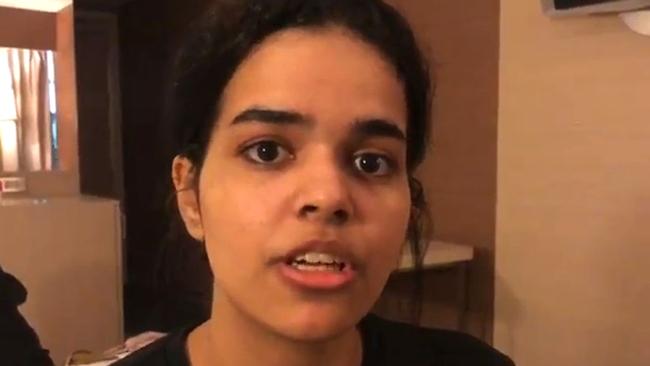
Ms al-Qunun arrived in Bangkok on a flight from Kuwait on Saturday, and planned to continue to Australia, where she held a tourist visa.
But after being detained by Thai authorities, she refused to board a flight back to Kuwait. After grabbing worldwide attention with dramatic posts on social media in which she said she feared for her safety if made to return home to her family, Ms al-Qunun eventually was placed in the care of the UN High Commissioner for Refugees as her bid for refugee status was considered.
FATHER DENIES ABUSE
Ms al-Qunun’s father denied physically abusing her or trying to force her into an arranged marriage, among the reasons she gave for her flight, Thailand’s Immigration Police chief said after meeting him Wednesday.
The father, whose name was not released and who was not seen by reporters, said he wants his daughter back but respects her decision, police Lt. Gen. Surachate Hakparn said.
He described the man as being a governor in Saudi Arabia.

“He has 10 children. He said the daughter might feel neglected sometimes,” Mr Surachate said. “But he didn’t go into detail.” Ms al-Qunun refused to meet with her father, who arrived in the Thai capital on Tuesday. She had said in her online postings that she was afraid of such an encounter.
Ms al-Qunun arrived in Bangkok from Kuwait late Saturday, but was stopped from proceeding to her planned destination of Australia.
After mounting a campaign for assistance on Twitter, she was allowed to temporarily stay in Thailand under the care of the UN’s refugee agency, which ruled her claim for asylum valid.
AUSTRALIA CONSIDERS VISA
Australia’s Home Affairs Department said it would “consider this referral in the usual way, as it does with all UNHCR referrals.”
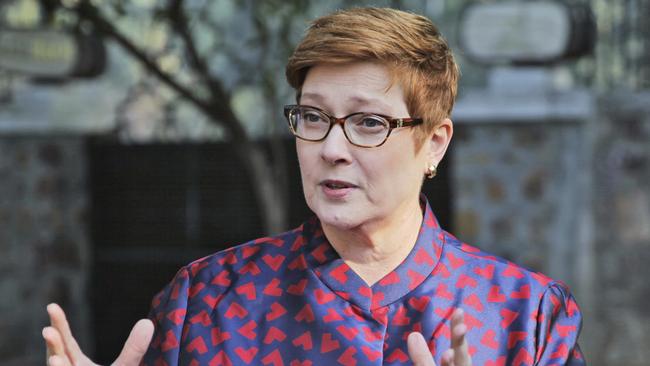
Earlier, Home Affairs minister Peter Dutton said there would be no special treatment for the teen but indications from Canberra suggest Alqunun may receive a sympathetic hearing.
Mr Dutton said while he did not want to see a young girl in distress her case was no different to any others.
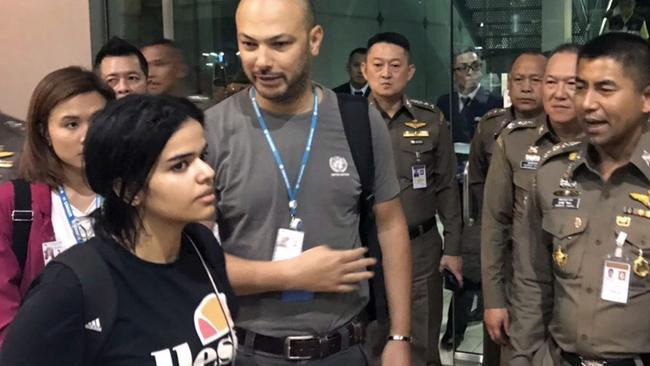
“Australia is a signatory to the convention and will work with the UN, but there is no special treatment in this case,” he said.
“The case will be assessed by the UN and it doesn’t make it different to any other case by that nature.”
“If she is found to be a refugee, then we will give very, very, very serious consideration to a humanitarian visa,” Health Minister Greg Hunt told the ABC before the UNHCR’s referral.
The case has highlighted the cause of women’s rights in Saudi Arabia.
Hey.. I’m happy â¤ï¸ðŸ™ðŸ» pic.twitter.com/FJJvz8Kzu0
— Rahaf Mohammed ره٠مØمد (@rahaf84427714) January 9, 2019
Several female Saudis fleeing abuse by their families have been caught trying to seek asylum abroad in recent years and returned home. Human rights activists say many more similar cases will have gone unreported.
The influence of the internet on Ms al-Qunun’s case was noted by several human rights advocates.
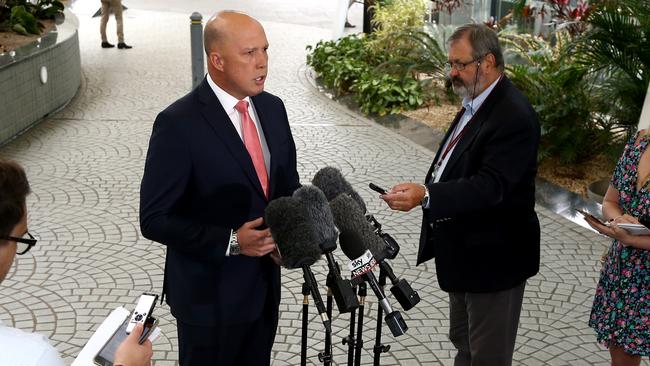
Human Rights Watch Australia Director Elaine Pearson said it was encouraging that Ms al-Qunun was able to highlight her situation using social media, and she hoped more Saudi women might act similarly.
“The unique thing about this case is that she had access to social media, and was able to report on it and bring the world’s attention to her plight,” Ms Pearson said.
“I think there are many cases like this that go unreported.” A similar point was made by UNHCR spokesman Babar Baloch, who said that what was different in Ms al-Qunun’s case was that “the wave of all of the voices of solidarity and support came together, joined up in terms of caring for this individual.”
TAKE PHONE, NOT PASSPORT
Mr Surachate discussed Ms al-Qunun’s situation on Tuesday with Saudi Charge d’Affaires in Thailand Abdalelah Mohammed A. Alsheaiby. In a video clip of the meeting released by Thai immigration police, Alsheaiby is heard telling Thai officials: “From the moment she arrived, she opened a new account and her followers reached almost 45,000 in a day.
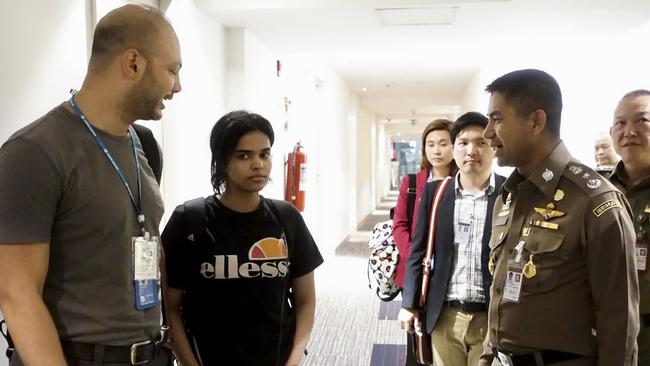
“I would have preferred it better if her phone was taken instead of her passport.”
The comments sparked anger on social media. Mr Surachate said that police could not confiscate her phone because she was not being detained and said that the Saudi diplomat’s remark was “just an opinion” and “nothing to be taken seriously.”
A statement from the Saudi Embassy in Thailand denied interfering in Ms al-Qunun’s case, and said it was only monitoring her situation. Describing her case as a “family affair,” it said Saudi officials had neither seized her passport — as Ms al-Qunun had claimed several times — nor demanded her deportation back home.
The embassy and Thai officials earlier said that Ms al-Qunun was stopped by Thai authorities because she did not have a return ticket, a hotel reservation or itinerary to show she was a tourist, which appeared to have raised a red flag about the reasons for her trip.
KINGDOM OF FEAR
Ms al-Qunun’s impassioned cry for help set off a media frenzy, prompting angry denunciations and death threats from many in a kingdom where guardianship laws are still widely supported.
But the incident sparked a rare online debate as several young Saudis, including men, implored authorities to dismantle the guardianship system.
Seen as a form of gender apartheid, the system means Saudi women are often only as free as their male “guardians,” husband, father and other male relatives, allow them to be. The men in their lives have to give formal permission for the women to study, get married or even renew their passports.
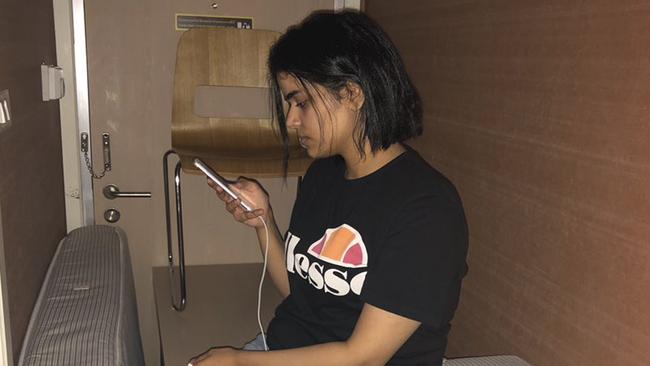
“Guardianship gives men the ultimate authority over women,” a young Saudi medical student named Bandar said in a video monologue posted on Twitter.
“He can control her, slap her, beat her, do whatever he wants and no (government) agency can stop him.
“This is causing women to dream about living elsewhere, away from where they were born and raised. Why? Because living here suffocates them.”
As the teen’s tweets went viral, a new hashtag gained traction in Saudi Arabia: “Drop guardianship or all of us will migrate”.
“Saudi society, in general, has utterly failed to come to terms with the reality that women have an equal desire for self actualisation,” tweeted another Saudi man, Ahmad Nasser al-Shathri.
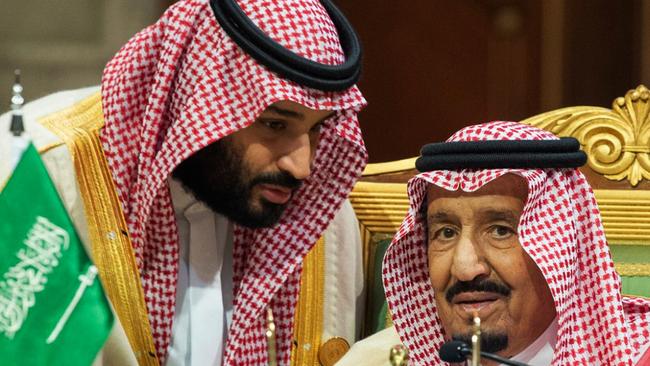
“The notion that a women’s innate desire is to be a homemaker is crippling our societal growth.”
Saudi Arabia’s wider human rights record has come under intense scrutiny since the killing of Saudi writer Jamal Khashoggi in October.
Mr Khashoggi, who wrote critically of Crown Prince Mohammed bin Salman in columns for The Washington Post, had been living in self-imposed exile before Saudi agents killed and dismembered him inside the Saudi Consulate in Istanbul.
The kingdom offered various shifting accounts of the circumstances of his death before eventually settling on the explanation that he died in a botched operation to forcibly bring him back to Saudi Arabia.


